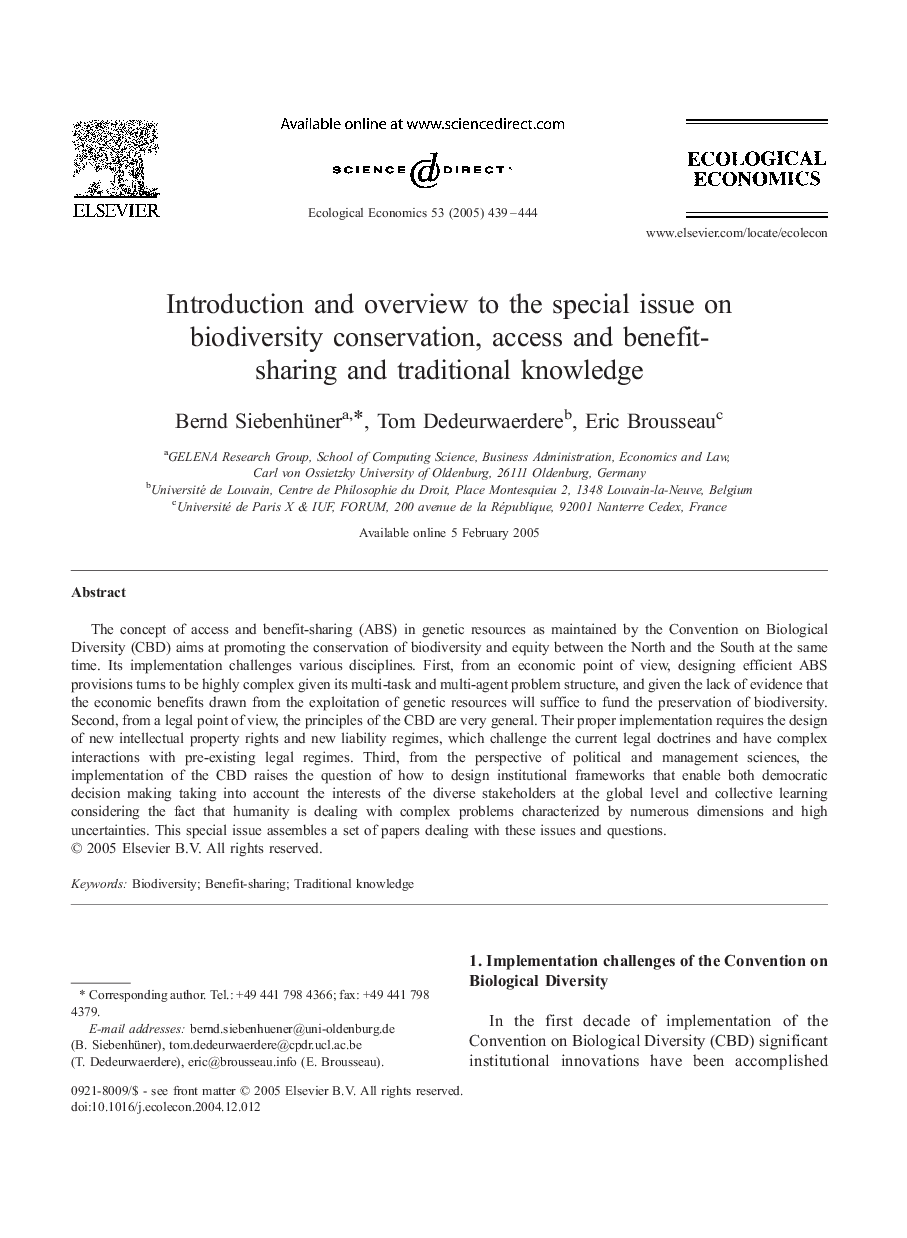| Article ID | Journal | Published Year | Pages | File Type |
|---|---|---|---|---|
| 9547794 | Ecological Economics | 2005 | 6 Pages |
Abstract
The concept of access and benefit-sharing (ABS) in genetic resources as maintained by the Convention on Biological Diversity (CBD) aims at promoting the conservation of biodiversity and equity between the North and the South at the same time. Its implementation challenges various disciplines. First, from an economic point of view, designing efficient ABS provisions turns to be highly complex given its multi-task and multi-agent problem structure, and given the lack of evidence that the economic benefits drawn from the exploitation of genetic resources will suffice to fund the preservation of biodiversity. Second, from a legal point of view, the principles of the CBD are very general. Their proper implementation requires the design of new intellectual property rights and new liability regimes, which challenge the current legal doctrines and have complex interactions with pre-existing legal regimes. Third, from the perspective of political and management sciences, the implementation of the CBD raises the question of how to design institutional frameworks that enable both democratic decision making taking into account the interests of the diverse stakeholders at the global level and collective learning considering the fact that humanity is dealing with complex problems characterized by numerous dimensions and high uncertainties. This special issue assembles a set of papers dealing with these issues and questions.
Related Topics
Life Sciences
Agricultural and Biological Sciences
Ecology, Evolution, Behavior and Systematics
Authors
Bernd Siebenhüner, Tom Dedeurwaerdere, Eric Brousseau,
